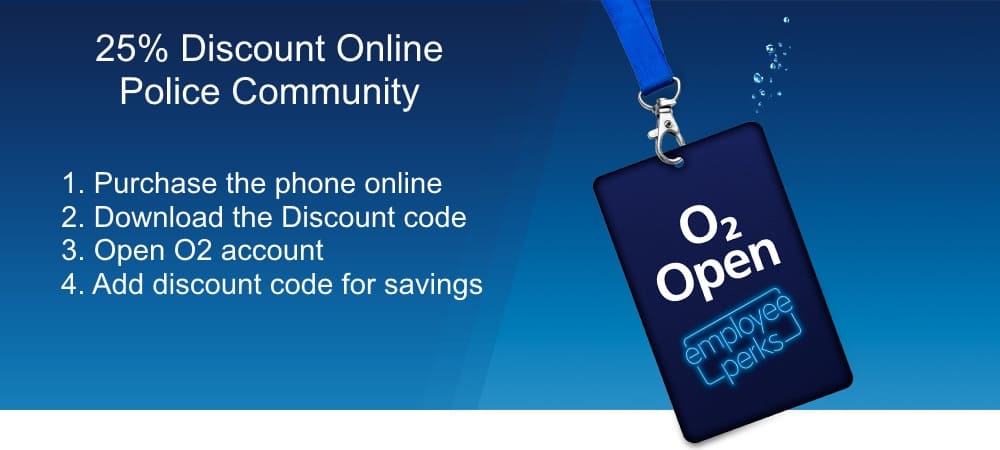
Embarking on a career as a police officer in the United Kingdom is a noble and fulfilling path. This comprehensive guide is designed for professionals who are considering joining the UK police force. We will explore every possible route into the service, ensuring you have all the necessary information to begin your journey.
Understanding the Basics
Before delving into the specifics, it’s crucial to understand the general requirements and the commitment involved in becoming a police officer in the UK.
General Requirements
- Be over 18 years of age.
- Pass the police fitness test.
- Pass background and security checks.
- Have a certain level of eyesight and meet other health requirements.
Time Commitment
The question of “How long does it take to become a police officer in the UK?” is common. Generally, the training period lasts approximately two to three years, including both classroom learning and on-the-job training.
Routes into the Police Service:
Traditional Entry
The traditional route involves applying directly to a police force and undergoing their training program. This typically includes a two-year probationary period, during which you’ll receive classroom and practical training.
Degree-Holder Entry Programme
The Degree-Holder Entry Programme (DHEP) is a specialized route into policing designed for individuals who already possess a bachelor’s degree in any subject. This program acknowledges the value of higher education and leverages the skills and knowledge that degree holders bring to the policing profession.
Key Features of DHEP
- Duration and Structure: The DHEP typically spans two years. During this period, trainees are employed as police officers, receiving both practical training on the job and academic instruction. This blend ensures a comprehensive understanding of policing theory and practice.
- Qualification Gained: Upon successful completion of the DHEP, participants earn a graduate diploma in professional policing practice. This qualification is not only a testament to their policing skills but also enhances their academic portfolio.
- Eligibility: The primary requirement is to hold a bachelor’s degree from a recognized university. Applicants also need to meet the standard entry criteria for police officers, which include fitness, health, and background checks.
- Training Focus: The program covers a wide range of policing aspects, including law, community engagement, crime prevention, and investigation skills. It emphasizes developing critical thinking and decision-making skills in the context of policing.
- On-the-Job Experience: Trainees are assigned to various policing roles during the program, offering them real-world experience in different aspects of police work. This hands-on approach is crucial for developing practical skills and understanding the day-to-day challenges of policing.
- Mentorship and Support: Throughout the DHEP, trainees receive guidance and mentorship from experienced officers. This support is vital for professional growth and helps integrate academic learning with practical policing.
Benefits of the DHEP
- Career Acceleration: For degree holders, the DHEP offers a fast-tracked entry into a policing career without needing to pursue additional, lengthy qualifications.
- Professional Development: The program enhances professional skills such as leadership, communication, and critical analysis, which are valuable in various roles within the police force.
- Diverse Opportunities: Graduates of the DHEP are well-positioned to explore different career paths within policing, including specialized and leadership roles.
- Making an Impact: The program equips participants to make meaningful contributions to community safety and well-being, aligning with the core mission of policing.
Application Process
The application process for the DHEP involves several steps, typically starting with an online application, followed by assessments, interviews, and fitness tests. It’s crucial to prepare thoroughly for each stage and demonstrate not only your academic capabilities but also your commitment to the values and responsibilities of policing.
Conclusion
The Degree-Holder Entry Programme offers a unique and rewarding pathway for graduates to embark on a policing career. By combining academic learning with practical experience, it prepares individuals to meet the challenges of modern policing effectively and contribute significantly to their communities.
Police Constable Degree Apprenticeship (PCDA)
The Police Constable Degree Apprenticeship (PCDA) is an innovative entry route into policing, allowing individuals to train as police officers while simultaneously earning a degree in professional policing practice. This program is designed for those who do not already hold a degree and offers a unique blend of academic learning and practical, on-the-job experience.
Key Aspects of the PCDA
- Duration and Structure: The PCDA typically spans three years. During this period, apprentices are employed as police officers and divide their time between operational policing duties and academic study. This structure enables apprentices to apply theoretical knowledge directly to real-life policing situations.
- Qualification Earned: Upon completion of the program, apprentices graduate with a BSc (Hons) in Professional Policing Practice. This degree is specifically tailored to equip them with the knowledge and skills required for a career in policing.
- Eligibility Criteria: Applicants must be over 18 years old and meet specific criteria, including fitness, health, and background checks. Academic entry requirements can vary slightly between different police forces but generally include a minimum level of education (e.g., A-levels, an equivalent qualification, or relevant policing experience).
- Training Focus: The program covers a broad range of topics essential to policing, such as criminal law, ethics, community policing, and investigative skills. It also emphasizes developing problem-solving, decision-making, and effective communication skills.
- On-the-Job Training: Apprentices are assigned to various roles within the police service, providing invaluable real-world experience. This hands-on approach is critical for understanding the practical aspects of policing and developing essential operational skills.
- Mentorship and Support: Throughout their training, apprentices receive support and mentorship from experienced officers and tutors, which is vital for their professional development and successful integration into the police force.
Benefits of the PCDA
- Earn While You Learn: The PCDA allows apprentices to receive a salary as police officers while they complete their degree, making it a financially viable option for many.
- No Tuition Fees: Unlike traditional degree paths, apprentices do not pay tuition fees, as these costs are covered by the police force and the government’s apprenticeship levy.
- Career Foundation: Graduates of the PCDA are well-prepared for a career in policing, having developed both the academic knowledge and practical skills required for the role.
- Diverse Career Pathways: With a degree in professional policing practice, graduates have the foundation to pursue various specializations and advancement opportunities within the police force.
Application Process
The application process for the PCDA involves several stages, including an online application, assessment centres, fitness tests, and interviews. Prospective apprentices should be prepared to demonstrate their commitment to a career in policing, as well as their ability to balance academic study with the demands of operational policing.
Conclusion
The Police Constable Degree Apprenticeship provides a comprehensive and practical route into policing for individuals without a degree. By integrating academic learning with on-the-job training, it prepares apprentices for the diverse and challenging role of a police officer, equipping them with the skills and knowledge necessary to make a positive impact in their communities and advance within the police service.
IPLDP and Police Constable Entry Programme (PCEP) Overview
As part of the diverse entry routes into the UK police force, two notable pathways are the Initial Police Learning and Development Programme (IPLDP) and the Police Constable Entry Programme (PCEP). These programs offer different approaches to entering the police service, tailored to various educational and experiential backgrounds.
Initial Police Learning and Development Programme (IPLDP)
The IPLDP, often referred to as the Traditional route, is still available in some forces until its discontinuation in March 2024. This pathway involves a two-year training program. Upon successful completion of this period and the probation phase, candidates are awarded a Level 3 Qualification in Professional Policing Practice and are confirmed in their post as a police constable.
Entry Criteria for IPLDP
To be eligible for the IPLDP, candidates must either possess at least two A-level qualifications (or equivalent) or demonstrate relevant experience or training that is considered equivalent to a Level 3 qualification. Each application is assessed individually, and candidates are encouraged to discuss their unique experiences and training with their chosen police force to determine eligibility.
Police Constable Entry Programme (PCEP)
Set to be available to all forces from April 2024, the PCEP is a new addition to the suite of entry routes for aspiring police constables. Similar to the IPLDP, this program also encompasses a two-year training period. Candidates who successfully complete their probation under this program will also be confirmed as police constables.
Entry Criteria for PCEP
The eligibility criteria for the PCEP mirror those of the IPLDP. Applicants need to have either two A-level qualifications or equivalent, or they can present relevant experience or training that aligns with a Level 3 qualification. Prospective candidates are advised to consult with their preferred police force to verify if their specific experiences or training meet the required standards.
Conclusion
Both the IPLDP and PCEP provide structured pathways for entering the policing profession, catering to individuals with different academic achievements and life experiences. Aspiring police officers are encouraged to consider these options carefully, aligning their choice with their qualifications and career aspirations. With the phasing out of IPLDP and the introduction of PCEP, the landscape of police recruitment continues to evolve, offering diverse opportunities for those dedicated to pursuing a career in law enforcement.
Joining Without Qualifications
For those wondering how to become a police officer in the UK without qualifications, the Police Constable Degree Apprenticeship (PCDA) is a viable option. It allows you to earn while you learn, requiring no prior qualifications other than standard entry-level requirements.
Specializing within the Force
Traffic Officer
Becoming a police traffic officer involves first qualifying and serving as a regular police officer. After gaining experience, you can apply for specialist training in traffic law enforcement, accident investigation, and high-speed driving.
Armed Police Officer
Aspiring to be an armed police officer requires first serving as a regular officer. You’ll then need to pass rigorous selection and training processes, focusing on firearms handling, tactical awareness, and decision-making under pressure.
Joining as a Special Constable
Special constables are volunteer police officers who work alongside regular officers. They have the same powers and responsibilities but typically work part-time. This role is ideal for gaining experience in policing while maintaining another career or studies.
Training and Commitment
Special constables undergo a training program covering law, policing skills, and community engagement. They are usually expected to commit a minimum number of hours per month to the role.
Advancing in Your Career
Once you join the police force, numerous opportunities for advancement and specialization open up. Continuous professional development, additional training, and experience in various policing roles can lead to promotions and specialized positions.
For a comprehensive overview of all police ranks and their respective meanings, please refer to our specialized blog post dedicated to this topic.
Final Thoughts
A career in the UK police service is both challenging and rewarding. It offers a unique opportunity to serve the community, uphold the law, and make a tangible difference in people’s lives. With multiple entry routes and specializations, there is a pathway for almost everyone, regardless of your educational background or career stage.
Keep in mind, upon becoming a qualified police officer, you’ll gain access to a range of valuable benefits from the Police Federation, along with several general police discounts. These perks and deals can be a significant aid in saving money, especially during financially challenging times.
Embarking on this journey requires dedication, resilience, and a commitment to public service. But for those who are up to the challenge, it can be a deeply fulfilling and respected career.











